Medicare Health Insurance:
The creation of Medicare health insurance was and still is a great concept assisting the elderly population at their greatest time of need. It’s an affordable health insurance and offers the best health care available; however, there are some shortcomings that everyone should be aware of.
Medicare health insurance covers eighty percent (80%) of the individual’s hospital and doctor’s bills. The other twenty percent (20%) are either paid for privately or a supplemental health insurance, which has a monthly fee in addition to the Medicare fee that is usually deducted from one’s Social Security monthly benefits.
A person having both Medicare and a Supplemental health insurance is basically covered one hundred percent (100%). However, neither Medicare nor the Supplemental Health Insurance pay for home care services or nursing home care, because they fall under the heading of Long Term Care.
How does one pay for Long Term Care?
There are several ways to pay long term care at home or nursing home and they are as follows: 1) pay privately using one’s life savings; 2) have long term care insurance; and 3) apply for Medicaid.
Option 1) Pay Privately:
Paying privately is the easiest way to achieve long term care, but is it the best option? One would have to consider the following: How long are the services needed? and does the applicant have enough resources to afford the services before they become impoverished?
Option 2) Long Term Care Insurance:
There are some Long Term Care Insurance policies that offer the insured peace of mind; however, the cost may not be attractable to everyone. Of course, if you happen to have saved a fortune, millions, there are policies that allow you to keep your millions while utilizing Medicaid; however, the applicant would have to prove they had spent a substantial amount of their life savings before they become eligible for Medicaid. Most of us are not in that bracket and therefore either choose to purchase a lessor policy which will pay for some home care hours and some nursing home days. Generally speaking if your insurance only pays for some hours you still have the burden of paying privately or apply for Medicaid for the additional hours.
Option 3) Medicaid:
There are two types of Medicaid applications and each have their own eligibility guidelines.
The first is Community Medicaid. Basic Community Medicaid provides health insurance; however, once a person is approved for Community Medicaid they can also request home care services. Financially an applicant cannot have more than $14,850 in resources and no more than $845 monthly income. Suppose an applicant has $114,850 in their bank accounts and an income of $3,845 per month. The applicant can transfer $100,000 to a child, trust or anyone and becomes financially eligible the very next month. Considering the applicant’s income is over by $3,000 applicant can join a pooled-income trust and secure their surplus income in a pooled income trust. The money in a pooled income trust can be used to pay the applicant’s bills.
The second type of Medicaid application is Institutional Medicaid. Institutional Medicaid have what we call a 5 year look-back period. This does not mean there is a 5 year penalty period. It simply means that the applicant has to surrender 5 years of bank statements. The ideal institutional Medicaid application is when one spouse requires assistance in a nursing home. In such cases, the ill spouse transfers all of their surplus resources to the well spouse and the following month they become financially eligible. The more challenging application are for single people. Single applicant’s do not have the privilege of transferring their life savings to anyone and are faced with two options: The first is to spenddown all of their excess resources (everything above the $14,850), and once they used all of their excess resources they will become eligible for Medicaid, or protect approximately 50% of their excess resources by utilizing a Medicaid approved pooled income trust.
Should you need additional information regarding the above referenced Medicaid issues please contact our office.

